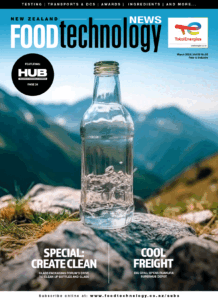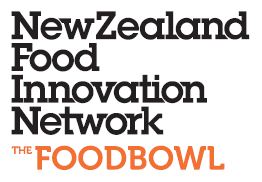By The FoodBowl Chief Executive Alexandra Allan
We are all born milk drinkers. So, it’s interesting to see, whether it’s oat, soy or coconut, that more people are switching from cow’s milk to the plant-based alternatives now on offer in New Zealand.
Considering approximately 65% of the world’s adult population have some form of lactose intolerance, it is not surprising that plant milk is a top-selling product in the vegetarian sector. And it is not just about being a vegetarian or lactose intolerance – people choose plant milks over cow’s milk for a variety of reasons, whether it is for animal welfare, lower environmental impact, to avoid dairy-milk allergens, or simply out of personal preference.
One in two American and European consumers occasionally or always uses plant milk, either by itself or in addition to cow’s milk, while in the Asia-Pacific and Latin American regions, more than two-thirds of all consumers are users.
The biggest users of non-dairy milk are 16-24-year olds according to a recent Mintel report, and they are quick to adapt to new brands and new products. Despite this, plant-based milks make up just 4% of the current milk market so still in their infancy, with 96% of milk sales in 2019 being for cow’s milk. Therefore, plenty of upside is predicted to come.
Concerns around health, ethics and the environment are driving sales of plant-based milks, says Emma Clifford, who looks after food and drink research at Mintel.
Health was the reason why 37% of 16-24-year olds said they had reduced cow’s milk consumption in the last 12 months. The impact of dairy farming on the environment was also a concern.
In addition to that, after trying plant–based milks, customers are realising they do not have to compromise taste, texture or nutritional values. A good example of that is Otis Oat M!lk, a New Zealand Start-up working closely with FoodSouth.
Tim and Chris from Otis approached FoodSouth to develop a production and packaging method with the distinct instructions that their Oat M!lk had to outperform all other alternative milks in terms of café functionality, whilst upholding ingredient provenance and taste.
“We started Otis with one clear purpose, to play a part in elevating the conversation about the need for New Zealand to diversify its agriculture sector, away from our economic dependence on dairy and toward a sustainable plant-based future.”
Their product is having great success in the café scene and is a strong performer against conventional milk.
The global success story ‘Oatly’ has gone from supplying a handful of upscale New York coffee shops to more than 3,000 cafes and grocery stores nationwide. The company has ramped up production by 1,250% just to keep up with demand. This then piqued the interest of global food manufacturers such as Unilever leading to the establishment of strong international plant-based milk markets – a great opportunity for New Zealand companies looking to export.
The plant milk boom is way bigger than just switching milk. To converts, hemp and oat milk are the next wave in a fundamental shift towards a more conscious, sustainable way of living. Since milk has become part of everyday life for many people, the use of plant milk contributes to a balanced diet and, at the same time, reduces personal food-related environmental impacts without having to completely change one’s eating habits.
Contact Alasdair Baxter at [email protected] to discuss your project and visit our website for more details, webinars, and blogs to help you on this journey. www.foodinnovationnetwork.co.nz/
Alexandra Allan is the Chief Executive for The FoodBowl – an open access facility operated by NZ Food Innovation Auckland and part of the NZ Food Innovation Network. She has experience in managing client projects as well as oversight on plant operations previously as the Client Solutions Manager for The FoodBowl. Prior to that, Allan has held senior positions at Danone and Horley’s in product development.




































































































